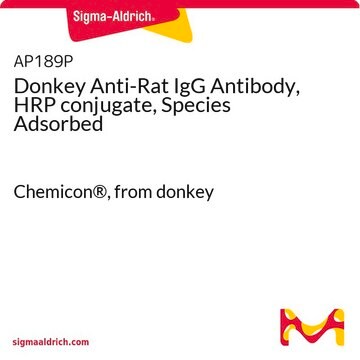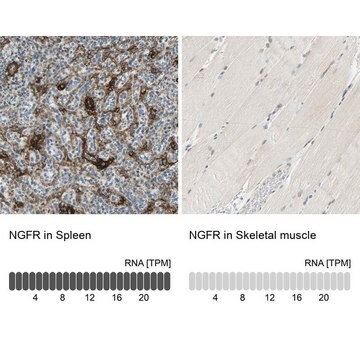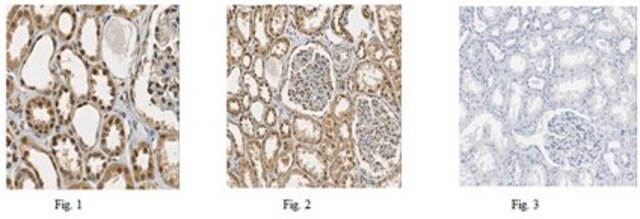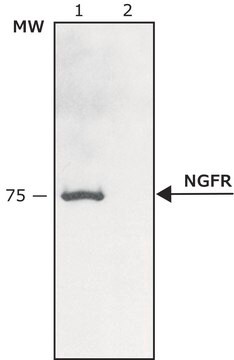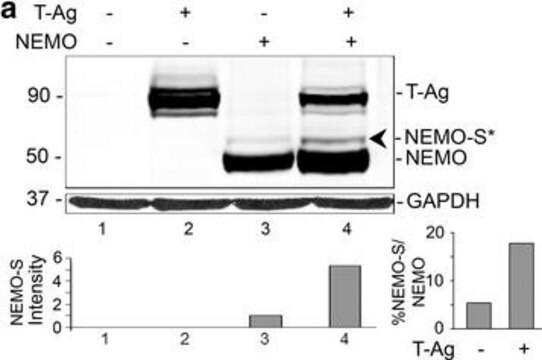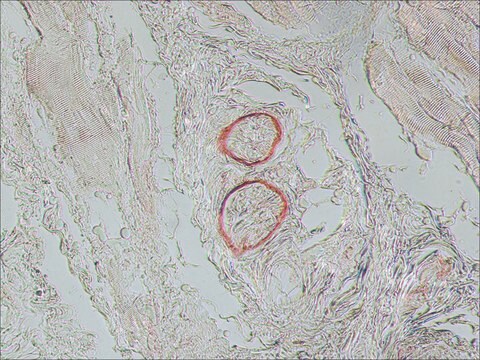ABD130
Anti-PRDM16 Antibody
from rabbit, purified by affinity chromatography
Synonym(s):
PR domain containing 16, MEL1, PFM13, KIAA1675, MEL1, MDS1/EVI1-like gene 1, Transcription factor MEL1, PR domain zinc finger protein 16
About This Item
Recommended Products
biological source
rabbit
Quality Level
antibody form
affinity isolated antibody
antibody product type
primary antibodies
clone
polyclonal
purified by
affinity chromatography
species reactivity
rat, human
technique(s)
immunofluorescence: suitable
immunohistochemistry: suitable
western blot: suitable
UniProt accession no.
shipped in
wet ice
target post-translational modification
unmodified
Gene Information
human ... PRDM16(63976)
General description
Specificity
Immunogen
Application
Immunofluorescence Analysis: 20 μg/mL from a representative lot detected PRDM16 in human brain cells.
Stem Cell Research
Pluripotent & Early Differentiation
Quality
Western Blotting Analysis: 2 µg/mL of this antibody detected PRDM16 in 15 µg of rat brain tissue lysate.
Target description
Physical form
Storage and Stability
Analysis Note
Rat brain tissue lysate
Other Notes
Disclaimer
Not finding the right product?
Try our Product Selector Tool.
Storage Class
10 - Combustible liquids
wgk_germany
WGK 2
flash_point_f
Not applicable
flash_point_c
Not applicable
Certificates of Analysis (COA)
Search for Certificates of Analysis (COA) by entering the products Lot/Batch Number. Lot and Batch Numbers can be found on a product’s label following the words ‘Lot’ or ‘Batch’.
Already Own This Product?
Find documentation for the products that you have recently purchased in the Document Library.
Our team of scientists has experience in all areas of research including Life Science, Material Science, Chemical Synthesis, Chromatography, Analytical and many others.
Contact Technical Service
